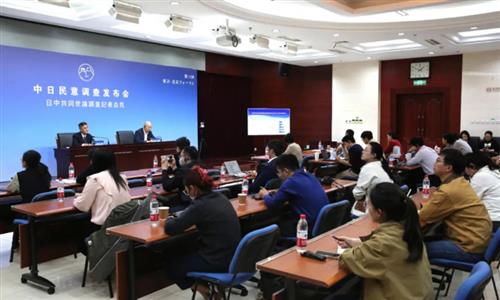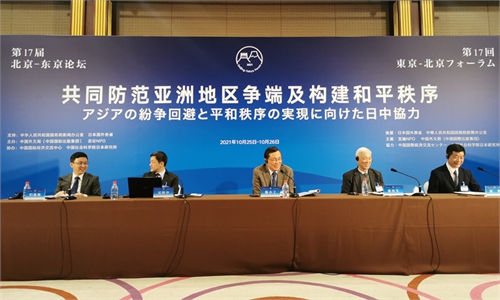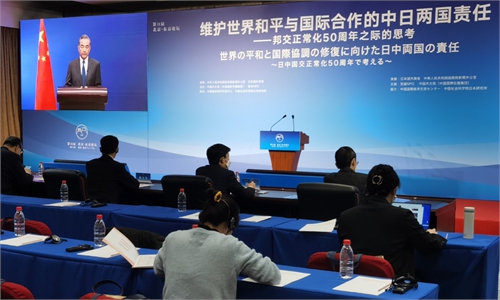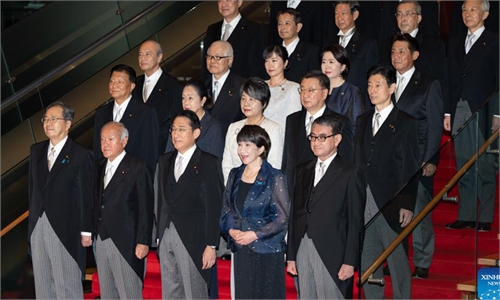Japan’s current cognition of China clearly regressed, frequently crossing lines on the Taiwan question: Wang Yi
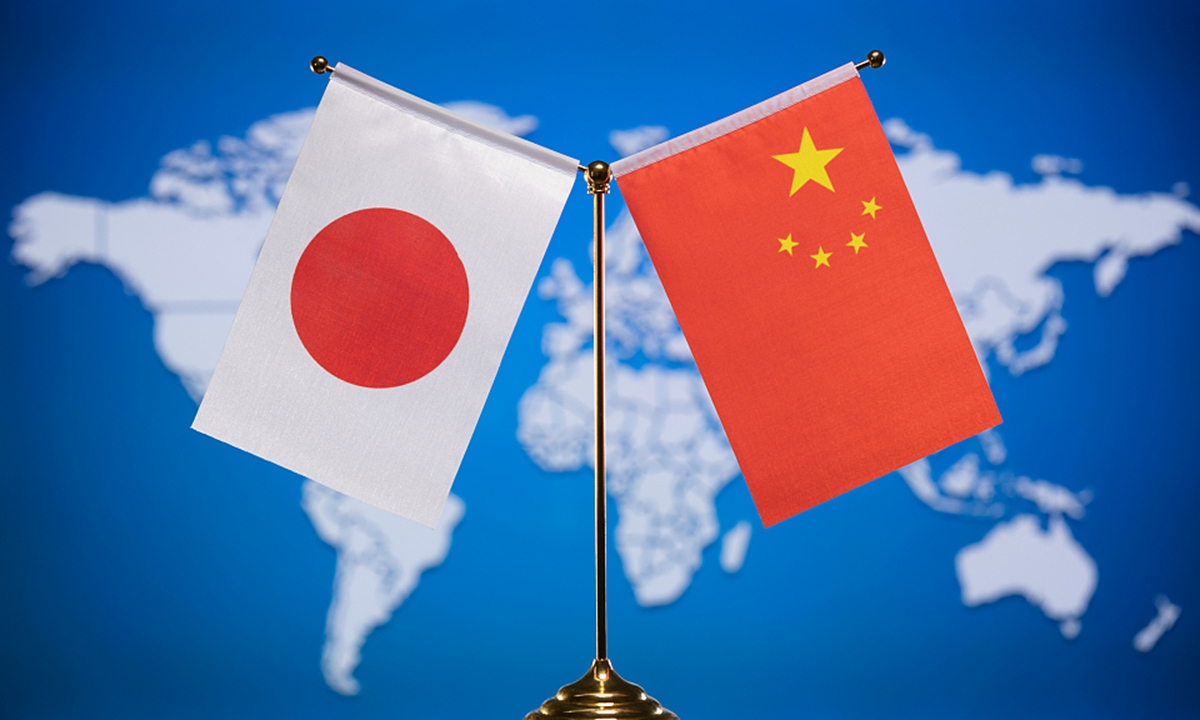
China-Japan Photo: VCG
Although this year marks the 45th anniversary of the signing of the China-Japan Treaty of Peace and Friendship, China’s top diplomat Wang Yi noted that Japan’s current cognition of China has clearly regressed and it frequently crosses lines on the Taiwan question, urging the Japanese side to abide by the four political documents signed between China and Japan.
Wang Yi, a member of the Political Bureau of the Communist Party of China (CPC) Central Committee, Director of the Office of the Central Commission for Foreign Affairs, and Minister of Foreign Affairs, made the remarks as he addressed the opening ceremony of the 19th Beijing-Tokyo Forum via video link on Thursday.
Regarding China-Japan relations, Wang said that both sides should honor their commitments and uphold the political foundation of the bilateral relationship.
The four political documents between China and Japan, including the China-Japan Treaty of Peace and Friendship, constitute the political foundation of the bilateral relationship, the core of which is the important understanding and consensus on major sensitive issues such as history and the Taiwan question that the two sides have reached, Wang said
The facts have proved that only if both sides faithfully abide by the agreement can the relationship between the two countries develop smoothly. Otherwise, the relationship between the two countries would deviate from the right course, and can go astray, Wang said.
Wang pointed out that Japan’s current cognition on China has clearly regressed, as it has mistakenly identified China as an unprecedented and significant strategic challenge in addition to frequently crossing lines on the Taiwan question, which has caused substantial damage to the political foundation of the bilateral relationship.
We hope the other side returns to the original intention of the treaty, corrects its understanding of China, and adheres to the principles of the four political documents signed between China and Japan, keeping promises on major sensitive issues, and effectively implement the political consensus that “China and Japan are cooperative partners and pose no threat to each other” into policies and implement it in actions.
When mentioning the people-to-people sentiments between the two countries, Wang pointed out that influenced by the atmosphere of China-US relations, the people’s sentiment between China and Japan has been lingering at a low level in recent years, which must be paid high attention to, and China and Japan should work together to reverse it.
According to Wang, people-to-people exchanges have gradually resumed, and a series of activities have been carried out as the epidemic eases now. Recently, athletes from China and Japan achieved excellent results during the 19th Asian Games in Hangzhou, creating exciting moments for spectators.
The less satisfactory the bilateral relationship is, the more we should carry forward the tradition of promoting official relations through non-governmental exchanges, Wang said, urging to promote more face-to-face exchanges between the peoples, especially the younger generation of both countries.
The results of a joint public opinion survey recently conducted by China and Japan show that the percentage of Japanese people with a negative impression on China has increased compared to the previous year. Similarly, the percentage of Chinese with a negative impression on Japan has also slightly increased.
Global Times
